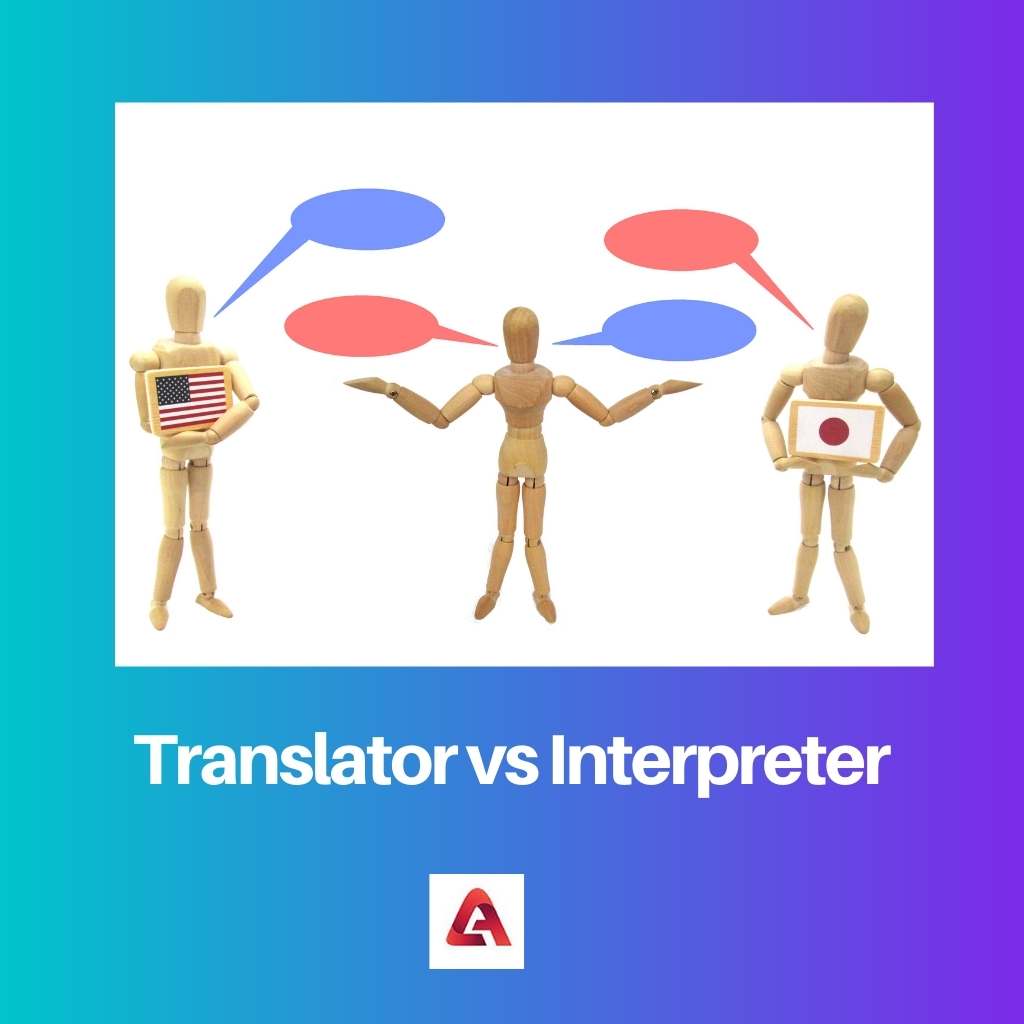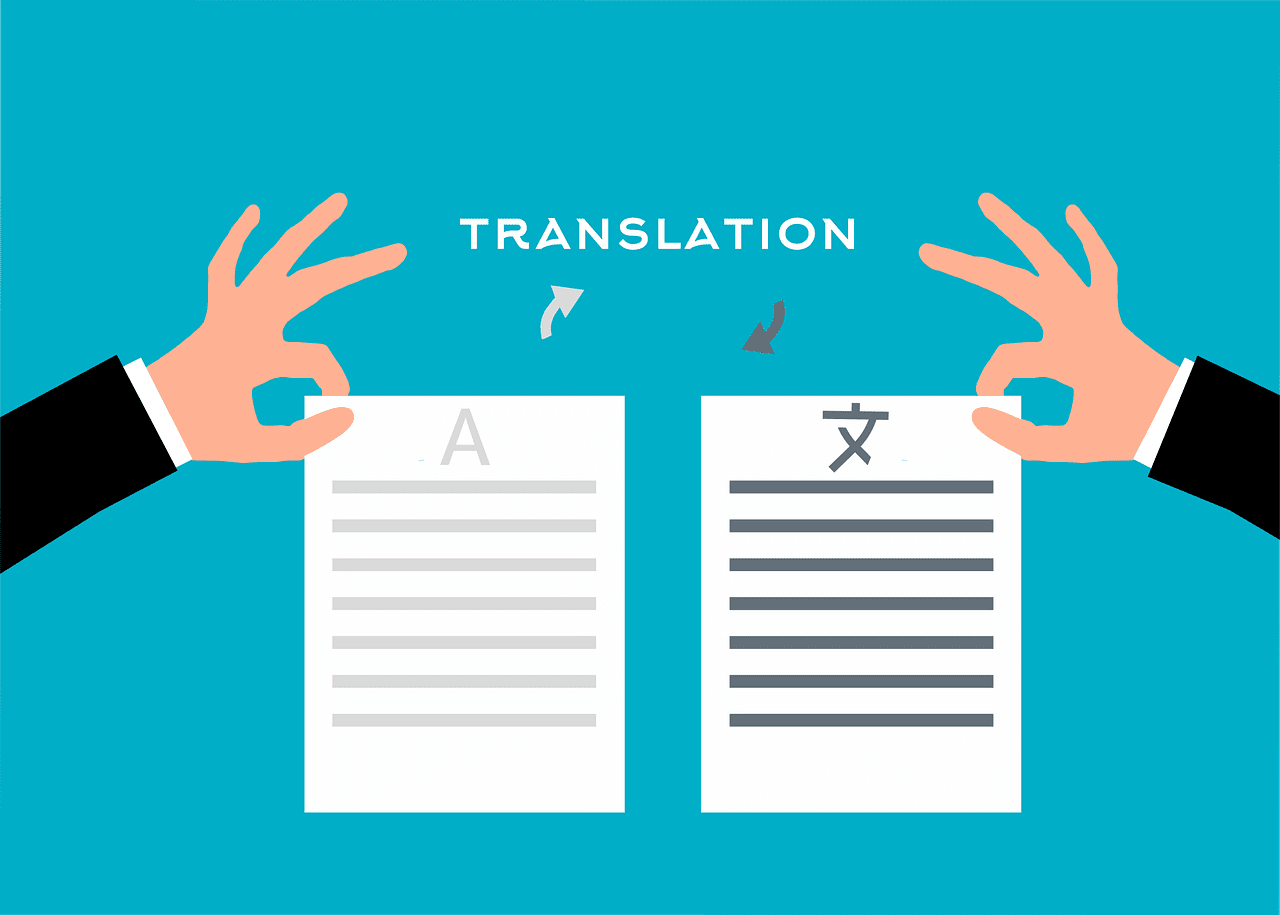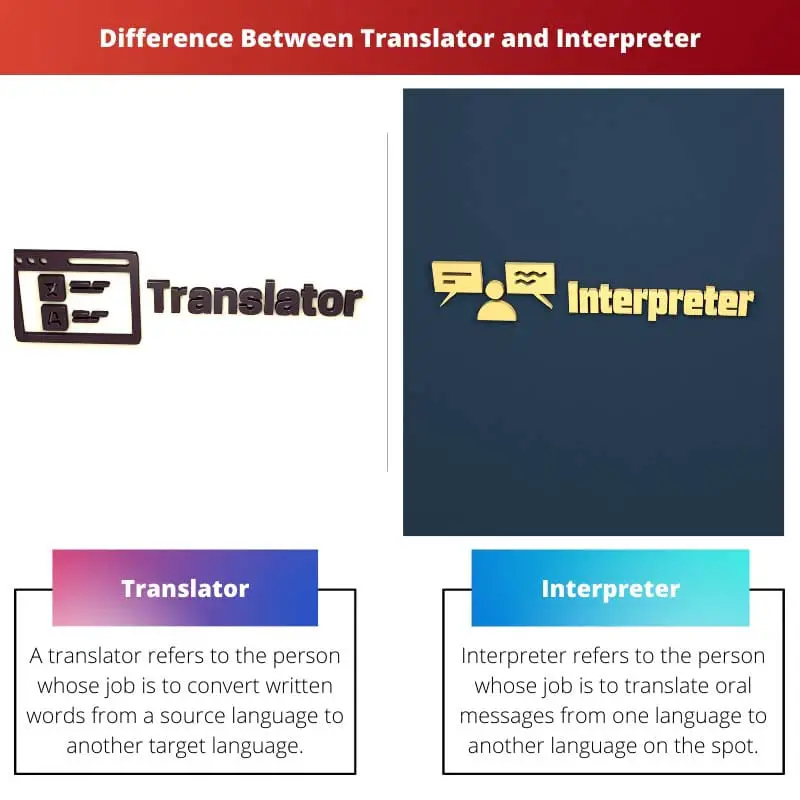Many people have a perception that translator and interpreter are different terms used for a single working professional who works on translating different languages.
Though this belief is partly true, this is not as simple as this. If you dig a little deeper, there are some differences between a translator and an interpreter.
Key Takeaways
- Translators work with written texts, converting them from one language to another, while interpreters deal with spoken language in real-time communication.
- Translators have more time to analyze and research their work, while interpreters must think and react quickly during conversations.
- Translation involves specialized software, whereas interpreting relies on strong listening and speaking skills.
Translator vs Interpreter
The difference between a translator and an interpreter is that a translator refers to a linguist whose work is to convert a written text from one language to another target language. On the other hand, an interpreter refers to a person who converts oral messages from one source language to another and vice versa.

The translator is the person who converts the written word from one language to another target language.
The main goal of a translator is to ensure that the translation properly presents the concept of the original version. For this, the translator needs to have equal efficiency in both the source and target language.
The interpreter is the person who converts oral messages from one source language to another target language.
They work with spoken words and interpret oral messages from one language to another on the spot.
The process of interpretation may occur by phone, via video call, or in person. Interpretation needs a lower accuracy level of translation.
Comparison Table
| Parameters of Comparison | Translator | Interpreter |
|---|---|---|
| Definition | A translator refers to the person whose job is to convert written words from a source language to another target language. | Interpreter refers to the person whose job is to translate oral messages from one language to another language on the spot. |
| Skills | A translator needs to have good writing skills as their main aim is to translate a written document to another written document in an accurate, error-free, and smooth way. | An interpreter needs to have excellent public speaking and listening abilities as they listen to the speaker and translate the message on the spot. |
| Accuracy | A translator is given a fixed time to translate a source file. They can review and edit their work and can get the help of the dictionary, proofreaders, and editors to improve their work. As a result, the final work of a translator always remains highly accurate. | An interpreter needs to interpret on the spot. There is no time to improvise. They translate the core thought of the source in their way. So, in this case, the accuracy level is low. |
| Associate tools | A translator can use computer-assisted tools for translation. They also can use reference materials and dictionaries to improve their translation. | An interpreter can just use note-taking audio equipment, other than that they completely depend on their own skill. |
| Directions | Generally, a translator works in only one direction- they only translate into their own mother tongue. | An interpreter needs to be fluent in both the target and the source language. They work in a two-direction way. |
What is Translator?
The translator is the person who converts written words from one source language to another target language.
They aid communication by translating information from one source language to another target language.
The main goal of a translator is to present a translation that clearly represents the original source material.
For this, a translator needs to be capable of writing properly to keep the facts and ideas of the original accurate in the translation.
A translator can use computer-assisted tools for translation. They also can use reference materials and dictionaries to improve their translation.
A translator needs to have good writing skills as their main aim is to translate a written document to another written document in an accurate, error-free, and smooth way.
A translator is given a fixed time to translate a source file. They can review and edit their work and can get the help of a dictionary, proofreaders, and editors to improve their work. As a result, the final work of a translator always remains highly accurate.
A translator needs to read the original source language fluently but need not speak the source language fluently.
Generally, a translator only speaks his/her native language. In most cases, translation can be conducted on a laptop or a computer, and they submit and receive their assignments through the Internet. Translation can be done from home using a laptop or computer.

What is Interpreter?
The interpreter is the person who converts oral messages from one source language to another target language orally.
An interpreter needs to have excellent public speaking and listening abilities as they listen to the speaker and translate the message on the spot.
The interpreter needs to interpret on the spot. There is no time to improvise.
They translate the core thought of the source in their way. So, in this case, the accuracy level is low.
An interpreter can use note-taking audio equipment, other than that, and they completely depend on their own skill. An interpreter needs to be fluent in both the target and the source language.
They work in a two-direction way.
An interpreter plays a significant role in building communication between 2 or more persons who can’t speak and understand the same language.
The main responsibility of an interpreter is to accurately convert a source language to another desired or target language. Interpreters translate oral messages on-spot and sometimes remotely in real-time.
In the modern world, an interpreter plays a significant role in fulfilling the right of the people to understand and know every piece of information.
The progress of the world has influenced migration. In today’s world, people are moving from their native country to other countries for better opportunities.
As a result, the role of an interpreter has been continuously growing in importance.
Main Differences Between Translator and Interpreter
- A translator refers to a person who converts written words from a source language to another target language. On the other hand, an interpreter refers to the person whose job is to translate oral messages from one language to another language on the spot.
- A translator needs to have good writing skills as their main aim is to translate a written document to another written document in an accurate, error-free, and smooth way. On the contrary, an interpreter needs to have excellent public speaking and listening abilities as they listen to the speaker and translate the message on the spot.
- A translator is given a fixed time to translate a source file. They can review and edit their work and can get the help of a dictionary, proofreaders, and editors to improve their work. As a result, the final work of a translator always remains highly accurate. An interpreter needs to interpret on the spot. There is no time to improvise. They translate the core thought of the source in their way. So, in this case, the accuracy level is low.
- A translator can use computer-assisted tools for translation. They also can use reference materials and dictionaries to improve their translation. An interpreter can use note-taking audio equipment, other than that, and they completely depend on their own skill.
- Generally, a translator works in only one direction- they only translate into their own mother tongue. An interpreter needs to be fluent in both the target and the source language. They work in a two-direction way.


This comparative analysis provides valuable insights into the specific roles and capabilities expected from both translators and interpreters.
This comparison effectively demonstrates the distinct nature of translation and interpretation as professional disciplines.
The unique requirements for accuracy and speed in translation and interpretation are evident in this comprehensive analysis.
Understanding the fundamental differences between translation and interpretation is crucial for appreciating the expertise and challenges of each field.
The distinctions between translation and interpretation elucidate the unique challenges and aptitudes required for successful performance in each role.
This comprehensive analysis is beneficial in demonstrating the complex nature of translation and interpretation as distinct professional fields.
Indeed, the specific requirements for translation and interpretation are clearly outlined, shedding light on the depth of expertise needed for each role.
The role-specific attributes of translation and interpretation are intricately detailed, offering a deeper understanding of the demands and expectations for each profession.
The examination of the idiosyncratic differences between translation and interpretation is essential in recognizing the unique complexities and aptitudes associated with each role.
The detailed assessment of the distinctive features of translation and interpretation provides valuable clarity on the specific skills and competencies required for effective practice.
The intricate details of translation and interpretation presented here highlight the diverse skill sets and competencies essential for each profession.
The exploration of the differences between translators and interpreters is fundamental for a full understanding of each profession’s requirement.
Translators and interpreters play unique roles in facilitating communication between people who speak different languages. It is important to recognize the specific skills and expertise required for each role.
Absolutely. The nuances of each role have a direct impact on the quality of communication between people across different languages.
This detailed comparison helps highlight the specialized skills and abilities needed to perform translation and interpretation effectively.